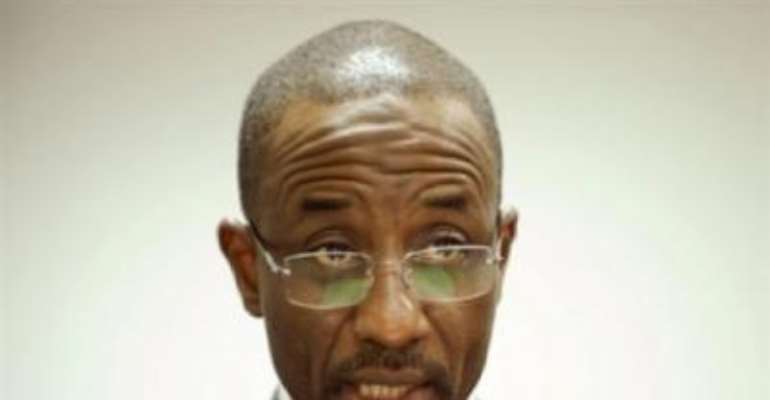Nigeria Central Bank Keeps Interest Rate At 6 Percent

Nigeria's central bank left the country's benchmark interest rate unchanged at 6.0 percent on Tuesday, despite rising inflation worries.
The decision was largely expected after Central Bank Governor Lamido Sanusi said last month his main priority was to stimulate economic growth and that monetary expansion was not a major concern.
"On the domestic scene, the MPC underscored the need for strengthening ongoing reform efforts in the banking sector aimed at engendering desirable medium-term economic growth," Sanusi told reporters on Tuesday.
The central bank will also keep its 2 percent corridor for lending and deposit rates around the benchmark rate (MPR) to 200 basis points above the MPR for lending and 400 basis points below the MPR for borrowing.
Getting credit flowing in Nigeria has been a key objective since a $4 billion bail-out of nine weakly-capitalised banks in August and October shook confidence and led banks to further tighten lending.
But inflation is rising, exacerbated by the country's import dependence and by periodic fuel shortages which have triggered spikes in transport costs and lifted the price of everything from food to building materials.
"The inflation outlook for 2010 remains uncertain, but a combination of both domestic and international economic developments ... pose serious threats to domestic price movements and, hence, inflation risk in the months ahead," Sanusi said.
Sanusi said the government's planned deregulation of fuel products, increased budgetary spending and possible capital inflows to banks could lead to a rise in inflation this year.
Consumer price inflation rose to 12.4 percent year-on-year in November from 11.6 percent the previous month, the Bureau of National Statistics said last month.
"With the decision to leave benchmark rates at 6 percent, Sanusi has indicated that economic and financial conditions overall are too weak to pay close attention to the inflation figures, which remain uncomfortably in double digits," said Richard Segal, director of emerging market research at Knight Libertas.
The central bank estimated Nigeria's economy grew by 6.9 percent in 2009, up from 5.98 percent the previous year.
Analysts said the central bank also wanted to avoid any major surprises with President Umaru Yar'Adua still in hospital overseas, a situation some say has already slowed government business.
"With political uncertainties high because of President Umaru Yar'Adua's month-long absence from the country and investors growing jittery, I suspect the central bank will keep its accommodative expansionary course," said Sebastian Spio-Garbrah, analyst for Eurasia Group, ahead of the central bank's decision.
Yar'Adua, 58, has been absent from Africa's most populous country for more than a month receiving treatment for a heart condition in Saudi Arabia, but there have been few updates on his health.
| Article source
